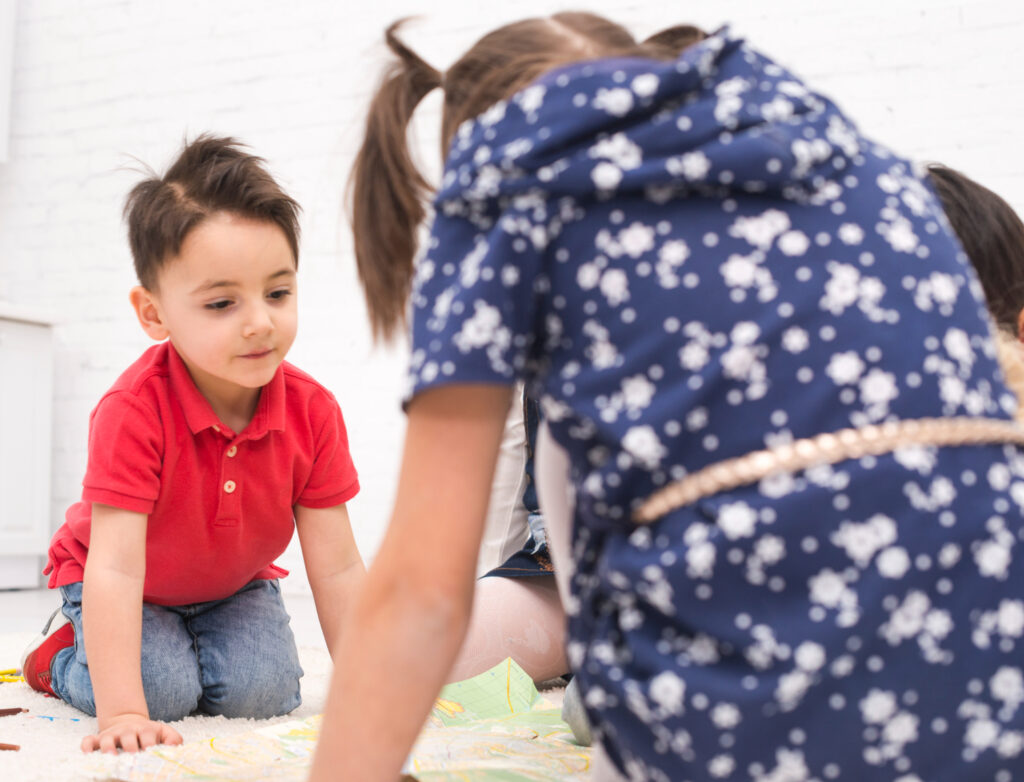Social development can be a challenging area for children with Autism Spectrum Disorder (ASD), but with the right strategies and support, they can build meaningful connections. At HOPE Centre for Autism, we understand that every child develops social skills at their own pace, and we are committed to providing parents with the resources needed to help their children thrive socially.
Why Social Development is Important for Kids with Autism
Social interactions play a key role in emotional well-being, communication, and building relationships. For children with autism, social difficulties may arise from challenges in:
- Understanding non-verbal cues like body language and facial expressions.
- Initiating or maintaining conversations.
- Engaging in group activities or peer interactions.
However, with tailored support, these children can develop the skills needed to form connections and build friendships.
10 Strategies to Support Social Development
1. Teach Social Skills Explicitly
Children with autism often benefit from direct instruction in social skills. Teach concepts like making eye contact, greeting people, taking turns, and sharing through structured lessons or role-playing exercises.
2. Use Visual Supports
Visual schedules, social stories, and picture cards can help children understand social situations. At HOPE Centre for Autism, we incorporate visual aids to help children prepare for social interactions and reduce anxiety.
3. Encourage Peer Interactions through Play
Playdates or small group activities create opportunities for children to practice social skills in a supportive environment. Start with structured activities that the child enjoys to make interactions more comfortable.
4. Model Appropriate Social Behavior
Children with autism often learn through imitation. Parents, teachers, and peers can model positive social behaviors, such as greeting someone warmly or expressing gratitude, to reinforce learning.
5. Social Skills Groups
Enrolling your child in a social skills group allows them to practice interactions in a safe, guided setting. These groups, offered at HOPE Centre for Autism, provide children with structured opportunities to build friendships.
6. Practice Conversation Skills
Help your child develop conversational skills by practicing common scenarios, such as ordering food, introducing themselves, or answering questions. Role-playing can reduce anxiety and build confidence.
7. Support Emotional Regulation
Children with autism may struggle with emotional regulation, which can affect their social interactions. Teaching coping strategies like deep breathing or using sensory tools can help them manage their emotions in social situations.
8. Use Positive Reinforcement
Encourage social participation by rewarding efforts with praise or small incentives. Celebrating small successes boosts confidence and motivates children to engage socially.
9. Break Down Social Situations
Large social gatherings can be overwhelming. Break down complex interactions into smaller, manageable steps to make them less intimidating. For example, instead of focusing on an entire birthday party, encourage participation in one activity.
10. Involve the School
Collaborate with your child’s teachers to create a supportive environment at school. Strategies such as buddy systems or lunch clubs can promote social engagement in a structured setting.
The Role of Parents in Social Development
Parents play a crucial role in fostering social skills at home. Here are some ways you can support your child:
- Provide Opportunities for Practice: Encourage social interactions during family gatherings or community events.
- Create Safe Spaces: Offer a quiet area at home where your child can retreat if they feel overwhelmed by social demands.
- Use Social Stories: Create simple stories about common social situations to help your child understand and prepare for them.
- Be Patient: Social development takes time. Celebrate every small milestone and encourage consistent effort.
How HOPE Centre for Autism Can Help
At HOPE Centre for Autism, we provide individualized programs designed to support the social development of children with autism. Our services include:
- Social Skills Training: We offer structured lessons to teach essential social skills and encourage interaction with peers.
- Behavioral Therapy: Our therapists help children develop strategies to manage emotions and engage in positive social behaviors.
- Parent Workshops: We equip parents with tools and techniques to support their child’s social growth at home.
- Group Activities: We organize group sessions to provide children with safe, fun environments to practice social interactions.
Conclusion
Supporting social development in children with autism requires patience, creativity, and consistent effort. Every child can learn and grow at their own pace when given the right guidance and opportunities. With the help of the strategies outlined above, parents can make a significant impact on their child’s ability to build connections and thrive socially.
At HOPE Centre for Autism, we are committed to empowering children and families to navigate the challenges of autism. If you are looking for specialized support to help your child with social development, reach out to us today. Together, we can create a brighter future for your child.
